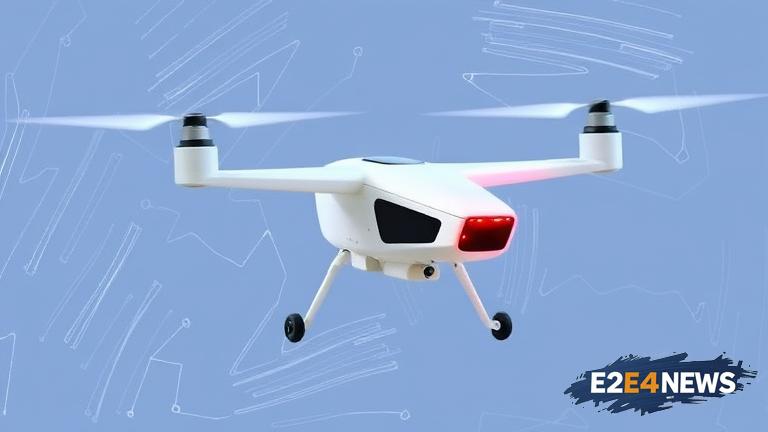The Federal Aviation Administration (FAA) has taken a significant step towards regulating the burgeoning electric vertical takeoff and landing (eVTOL) aircraft industry. The proposed rules, which are currently open for public comment, aim to provide a framework for the development and deployment of eVTOL aircraft, also known as flying taxis or air taxis. The new rules would apply to eVTOL aircraft that are designed for passenger transportation, cargo transport, and other commercial uses. The FAA has recognized the potential of eVTOL aircraft to revolutionize urban air mobility, reducing congestion and emissions in cities around the world. However, the agency has also emphasized the need for strict safety standards to ensure public safety. The proposed rules would require eVTOL manufacturers to meet specific safety standards, including those related to aircraft design, testing, and maintenance. Additionally, the rules would establish requirements for pilot training, operational procedures, and air traffic control. The FAA has also proposed rules for the certification of eVTOL aircraft, which would involve a rigorous testing and evaluation process. The agency has estimated that the new rules could lead to the certification of up to 100 eVTOL aircraft designs over the next five years. The proposed rules have been welcomed by industry leaders, who see them as a crucial step towards the commercialization of eVTOL technology. However, some have raised concerns about the potential costs and complexities of complying with the new regulations. The FAA has emphasized that the proposed rules are designed to be flexible and adaptable, allowing for the evolution of eVTOL technology over time. The public comment period for the proposed rules is expected to last for several months, during which time the FAA will gather feedback from industry stakeholders, regulators, and the general public. The agency has stated that it will carefully consider all comments and concerns before finalizing the rules. The proposed rules are seen as a major milestone in the development of the eVTOL industry, which is expected to grow significantly over the next decade. Several major manufacturers, including Boeing, Airbus, and Uber, are already investing heavily in eVTOL technology, with the goal of launching commercial services in the near future. The FAA’s proposed rules are expected to provide a boost to the industry, by providing a clear regulatory framework for the development and deployment of eVTOL aircraft. As the industry continues to evolve, it is likely that we will see significant advancements in eVTOL technology, including improvements in safety, efficiency, and sustainability. The FAA’s proposed rules are an important step towards realizing the potential of eVTOL aircraft to transform urban air mobility, and it will be interesting to see how the industry responds to these new regulations.
